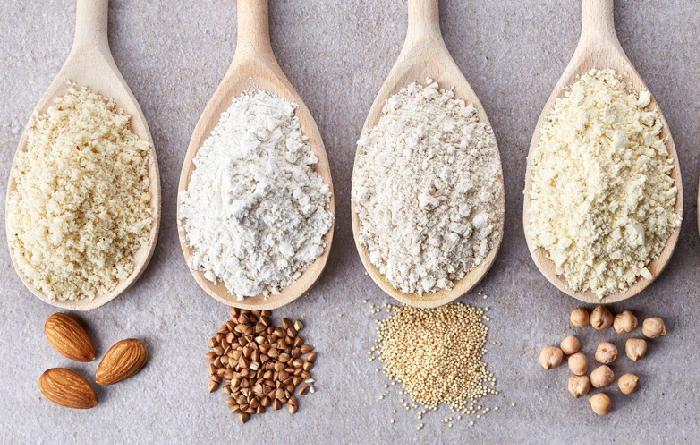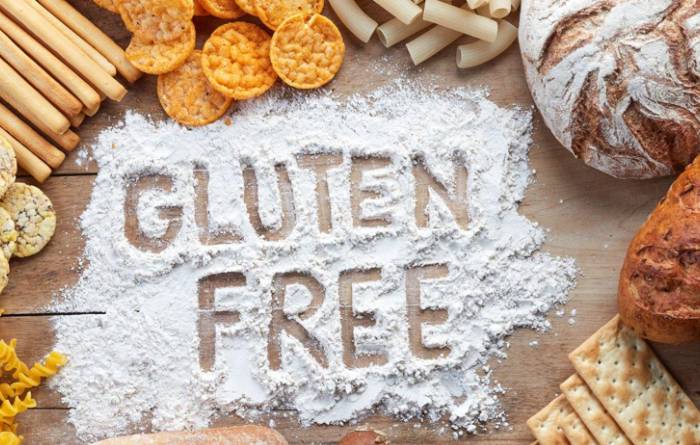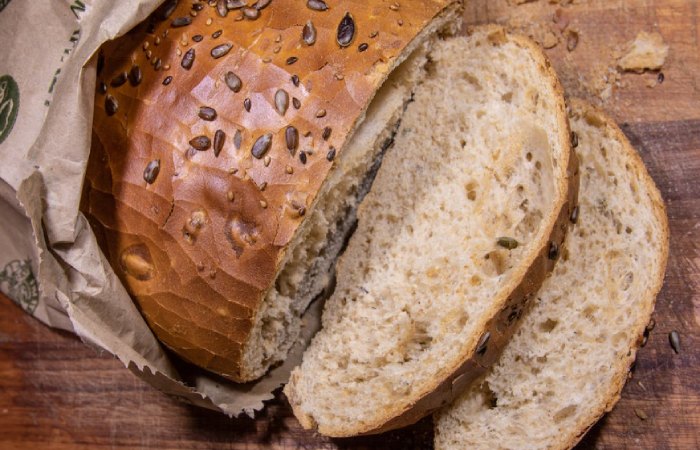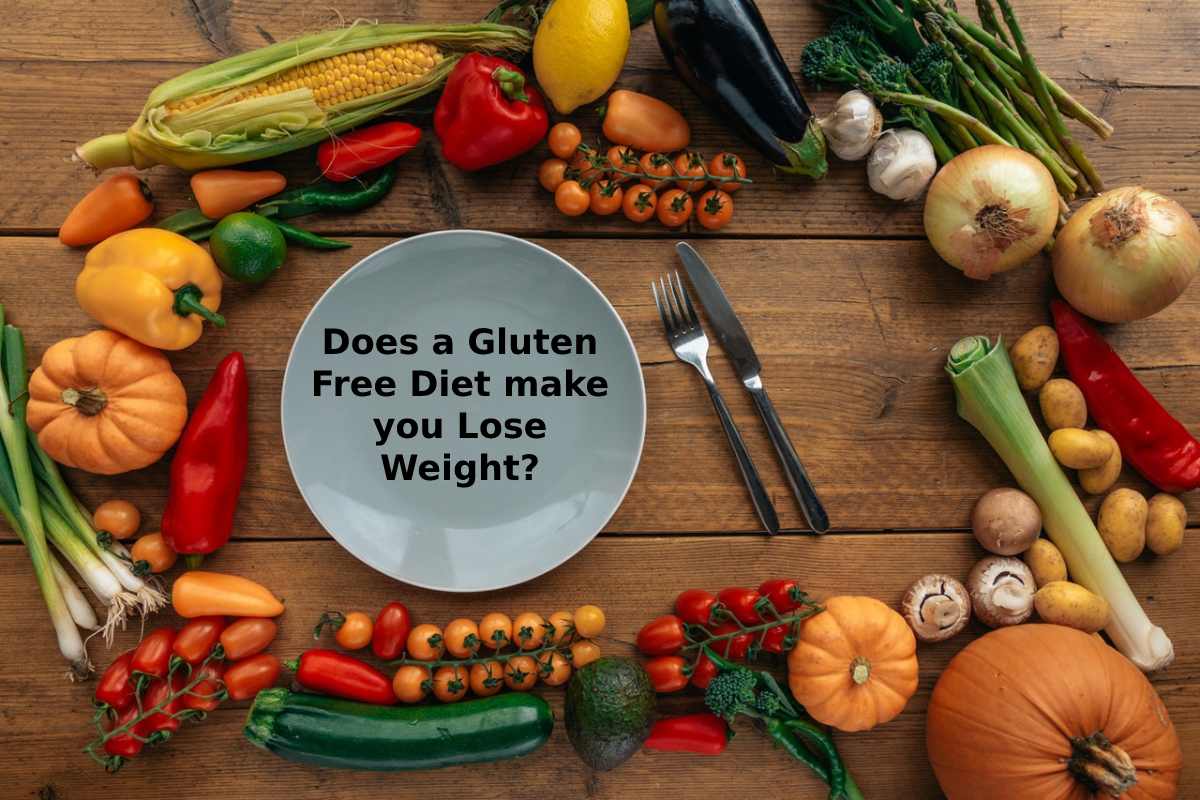Table of Contents
What is Gluten-Free Diet
Gluten, a protein in barley, wheat, and rye, must be avoided entirely while following a gluten-free diet. This kind of diet is necessary for people with celiac disease, non-celiac gluten compassion, or wheat allergies. These people’s gluten consumption sets off an immunological reaction that harms the small intestine’s lining and can cause symptoms, including bloating, diarrhoea, exhaustion, and weight loss.
People who follow a gluten-free diet avoid bread, pasta, cereals, and processed meals made from wheat, barley, or rye. They can instead eat gluten-free items, such as fruits, vegetables, nuts, seeds, and meats. Additionally, stores have various gluten-free substitutes, including gluten-free bread, pasta and flour manufactured from rice, corn or other non-gluten-containing grains.

It’s crucial to remember that avoiding gluten, unless necessary for your health, can be limiting and challenging. For a proper diagnosis and advice, it is best to speak with a healthcare provider if you have a gluten-related problem.
Why Does Gluten Have Such a Bad Press?
Initially, this protein is harmless but following several mutations made in agriculture to make cereals stronger against environmental conditions. The ancient wheat the modern wheat and moreover the cereals are not consumed whole but refined.
Refining consists in removing the bark of the cereal and exposing the grain. Once crushed, the grains give the white flour we know and the more it is rich in gluten the more elastic the dough will be.
When we eat foods made with modern refined white flour, the gluten without the husks directly touches the intestinal walls and can become irritating. This is why there is an widespread of “gluten intolerant” individuals.
This does not at all nasty that there are more people with allergies than before, it is simply that wheat has changed and is less digestible because it has lost almost all the fiber that protected the grain.
The second problem is that refined flours become fast sugars at the same time because the carbohydrates of the grain are already ready to pass the intestinal barrier without waiting for the separation from the fibers. We then notice an increase in the insulin level following the ingestion of refined flour and thus a weight gain, a resistance to insulin, hormonal disorders etc…
Gluten Free Diet

The gluten-free diet consists of completely eliminating from the diet all cereals containing gluten, the by-products of these cereals and the foods made from these by-products (examples: malt vinegar, certain minced meats, sausages, bouillon cubes, thickeners.). Grains containing gluten that are harmful to celiac patients include wheat, rye and barley. Oats are not always contraindicated in celiac patients.
Who is the Gluten-free Diet For?
- Celiac disease is a true intolerance to gluten. The disease affects approximately 1% of the general population. This prevalence underestimated due to the existence of frustrated. Unrecognized forms and the exact prevalence is closer to 2 to 4%. This intolerance results in an immunological reaction caused by the gliadin in gluten, leading to the destruction of the epithelium of the pancreas. Symptoms vary from one discrete to another and forms with few symptoms are common. Diet is the only effective treatment, as there are no drug alternatives. The diet must be followed for life to avoid complications bone demineralization, deficiencies and sometimes more serious complications such as lymphoma.
Gluten bigotry should confused with the rarer wheat allergy, which involves a different immune mechanism and immediate hypersensitivity reactions with allergic manifestations (skin rash, angioedema, anaphylactic shock in the most severe forms).
- Gluten hypersensitivity: Gluten intolerance outside of celiac disease (Non Celiac Gluten Sensitivity or NCGS). This entity is characterized by the recurrent occurrence of digestive symptoms (bloating, diarrhea, abdominal pain) and extradigestive symptoms when consuming certain flours. Which form a clinical picture similar to that of irritable bowel syndrome.
These subjects suffer from abdominal pain, alternating diarrhea and constipation, abdominal bloating, mood disorders, headaches, skin problems, etc. Symptoms disappear as gluten eliminated, and reappear if gluten resumed. Case, the role of gluten in the development of these symptoms remains to demonstrated because there is no intestinal villous atrophy.
- All people who feel better by not consuming gluten or by consuming much less gluten can do so because gluten is not essential to life.
Does Gluten-Free Help Weight Loss?
A gluten-free diet by itself might not always result in weight loss. It is because some gluten-free items could even include more sugar and calories than their gluten-containing counterparts. However, a gluten-free diet may result in some people ingesting fewer calories overall, significantly if they cut out processed foods and refined carbs. It is the main reason why some people may lose weight on a gluten-free diet.

For instance, a person may lose weight if they transition from a diet high in refined carbohydrates, like white bread and sugary cereals, to a gluten-free diet that prioritises whole foods, such as fruits, vegetables, thin proteins, and healthy fats. So, fewer calories consumed overall, as complete meals are typically more satisfying and nutrient-dense than processed foods.
However, a gluten-free diet does not ensure weight loss; thus, it should not be the primary motivation for starting one. When trying to lose weight, it’s crucial to integrate regular exercise and other healthy lifestyle practises as well as a balanced, healthy diet that caters to the needs and tastes of the individual.
Establishing a Diagnosis
Before the diagnosis is based on the search for specific serum antibodies to the disease in the blood. The anti-transglutaminase IgA; the confirmation by biopsies on the upper part of the small intestine (duodenum) by endoscopy.
Treatment
The only action for celiac disease is a strict gluten-free diet for life. The gluten-free diet should lead to a remission of symptoms.
Allergic people are allergic to even small traces of gluten. So all industrial products should checked carefully as they may contain traces.
Foods that are Naturally Gluten-free :
- grilled meats,
- fresh and dried vegetables
- fruits,
- fish,
- eggs,
- milk,
- corn, rice, buckwheat, quinoa, potato, soy, millet, sorghum
- lentils, soybeans, dried beans, legumes, chickpeas
What do you Think of the “Gluten-free” Foods on the Market?
Many of these foods, basically designed for celiac patients, are industrial products. Their composition, beyond the gluten-free guarantee, is not always exemplary. Often made of corn, rice or soy flour and have a very high glycemic index.
Eating industrial gluten-free products can be a good way to replace bread if you have a known allergy.

However, these are not diet products that will help you lose weight or that you can incorporate into your daily routine.
So they are often very expensive and not very famous for their taste and texture.
Does the Gluten-free Diet make you Lose Weight?
Because of this eliminating bread, pasta, pizza, pancakes, cakes, cookies and other products made with wheat flour will inevitably lead to a sharp decrease in the consumption of carbohydrates and sugar.
As a result, weight loss is happening due to the reduction of carbs. Just like in a Low Carb diet.
Now if the wheat based products are replaced by industrial products based on rice flour, but, soy, the carbohydrate levels return the same or even higher than before and in this case, the gluten free diet can even make you gain weight.
It is therefore necessary to consume raw and naturally gluten-free products and to limit sugars and simple carbohydrates to have an effect on weight.

